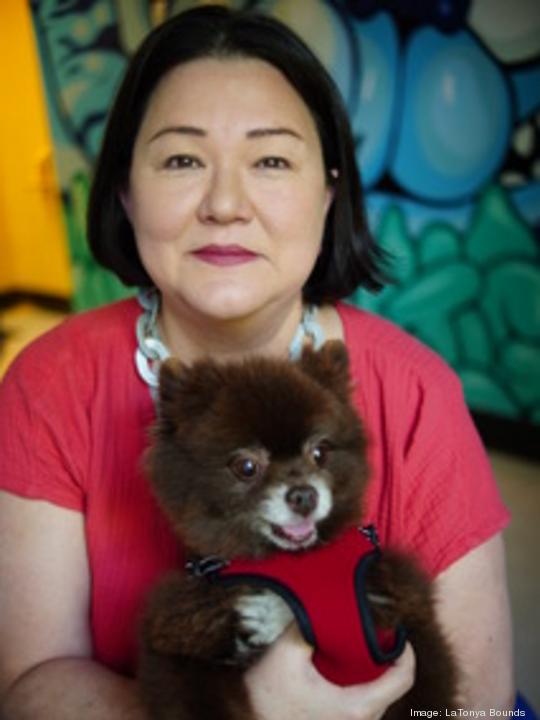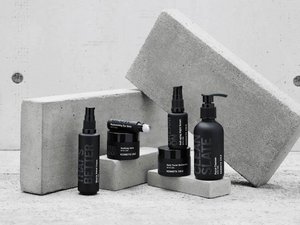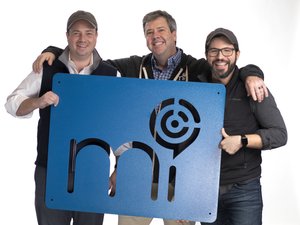
Let’s start with a young male pig. When he reaches puberty, he begins to produce pheromones and hormones to attract a mate.
The lady pigs find these alluring. Think of them as naturally produced, irresistible colognes. But for people who have an interest in seeing that pig ultimately become pork, the trait is less desirable. Because after the pig is slaughtered and its meat is cooked, the pheromones can lead to bore taint: a foul odor that you don’t want to smell in the food you’re about to consume.
“There are actually some people who can't smell it … but most people can,” said Dr. Seth Krantz, the staff veterinarian at Tosh Farms, the largest pork producer in Tennessee and one of the 30 largest in the country. “It's particularly prevalent, or most noticeable, when it's cooked.”
The major U.S. pork producers do have a solution for this, but it’s not pleasant for the pigs. Since the pheromones are made in the testes — where testosterone is created — they castrate male piglets early in life, typically removing them when they’re two-to-five days old. And because the FDA heavily regulates what medications can be given to food-producing animals, they’re usually castrated without anesthesia.
“We get bogged down in FDA regulations on what we can and can't do,” Krantz said. “And even regulations with drugs that are available for us to use on farms — unless a veterinarian is there actually giving them — create a lot of logistical hurdles that are pretty tough to overcome.”
Odds are much of the pork eaten by you and me came from pigs that were castrated without anesthesia, a process that can be distressing for the animals.
“As a veterinarian and as a human — especially a male — I have to imagine that surgical castration without anesthesia is painful for a pig,” Krantz said. “Throughout my career, I’ve always wished we could do something different.”
That wish could come true. Because these days, Krantz and Tosh Farms are working with a Memphis scientist who’s developing a product that could serve as a viable alternative to piglet castration.
Nutt Bio
Leta Nutt, Ph.D., is a former faculty member at St. Jude Children’s Research Hospital and the CEO of Nutt Bio — a startup she founded through the Patents2Products (P2P) program. She’s developing a single injection chemical sterilant for animals.
When MBJ first spoke to her in June 2021, her primary focus was on dogs. She wanted to help solve the stray animal problem, and her sterilant would involve a simple injection into each of the dogs’ testicles, a quick procedure that could potentially replace the more time-consuming traditional form of neutering.
But as Nutt went through the customer discovery process, she realized that launching and selling this version of the sterilant would be challenging. Gaining FDA clearance would cost millions of dollars, investors expected to see a financial return, and many of the animal shelters that handle neuters and spays couldn’t afford the price she would have to charge.
“It just hit me over the head: ‘Leta, you can't launch a new pharmaceutical product in the animal welfare space,’” she said. “They don't have the capacity to support something like that.”
Ahead of the curve
The pork industry, however, seemed like a promising alternative. According to Statista, almost 129 million hogs were slaughtered in the U.S. in 2021, a number that gave Nutt a larger pool of animals to potentially work with. Comparatively, PETA has noted that animal shelters take in more than 6 million animals a year, and that estimate includes cats as well as dogs.
The bigger prospective market in the pork industry meant Nutt could potentially sell significantly more sterilant and be able to lower the price.
“I needed to increase my volume so I could decrease the price of the injections,” she said.
As an animal lover, Nutt also saw it as a chance to alleviate the pain the male piglets faced; this was an opportunity solve what she considered to be an animal welfare problem. Yes, the pigs would only live about five-and-a half months, at which point they’d be slaughtered for food.
But she could help make their short lives more comfortable.
“I feel like my new goal in life is to make their life … as pleasant as possible,” she said, “and as kind as possible.”
Also looking to make their lives as pleasant as possible was Krantz, the staff veterinarian at Tosh Farms, which is located in Henry, Tennessee, near Paris. Nutt heard him speak on a podcast, and she was impressed by the care and concern he showed for the company’s livestock. Nationally, she said, the average piglet pre-weaning mortality rate is about 15%. At Tosh Farms, it’s about 7%.
“Dr. Krantz is ahead of the curve,” Nutt said. “And he cares deeply about the health and welfare of his animals.”
After listening to him on the podcast, Nutt emailed him and explained the product she was developing. Intrigued, Krantz spoke to her on the phone, and that conversation started a partnership.
A year later, they’re still working together. But don’t expect her product to become available immediately.
‘My personal hope’
Right now, Nutt is trying to optimize her sterilant for Tosh Farms’ workflow process.
“How can I adapt my injection into this workflow process so that it's as seamless as it is now for them,” she said.
Animal techs at Tosh Farms can process a litter of 15 piglets in just 5 to 10 minutes, so Nutt wants to be able to inject each of a piglet’s testicles in 20 seconds or less. A long procedure would be inefficient compared to what pork manufacturers do now, and less appealing.
She must also gain FDA clearance; and though her sterilant has had a 100% success rate sterilizing rats, she has to show she can completely block boar taint in piglets through a proof-of-concept study she'll do at Tosh Farms.
“What I did in the rats is going to be different when I do it in the piglets,” she said. “The active ingredient is the same. I don't know if I'll have to play with the formulation at all, but it should be pretty set.”
There is a lot left to do, but Nutt is confident that her solution can make a difference. And if all goes well, Tosh Farms could end up being her first customer.
“That's my personal hope, that we are really at the front end,” Krantz said. “I would say my long-term goal would be that this is something that we fine tune and figure out, and that it's adopted throughout the industry.”









